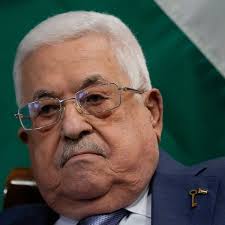
Introduction
Mahmoud Abbas, the President of the Palestinian Authority, plays a pivotal role in Middle Eastern politics amidst ongoing conflicts and diplomatic efforts. His leadership has implications not only for Palestinian autonomy and governance but also for broader regional dynamics. As tensions rise in various aspects of the Israeli-Palestinian conflict, understanding Abbas’s position and strategies is vital for comprehending the future of peace in the region.
Background of Mahmoud Abbas
Born on March 26, 1935, in Safed, Palestine, Mahmoud Abbas, often known as Abu Mazen, has been a key political figure since the late 20th century. He became a key member of the Palestine Liberation Organisation (PLO) and later served as its chairman. In 2005, Abbas succeeded Yasser Arafat as the President of the Palestinian Authority, bringing with him a range of political philosophies aimed at achieving Palestinian statehood through negotiation rather than armed confrontation.
Current Challenges and Developments
In recent months, Mahmoud Abbas has faced significant challenges. The ongoing tensions in Gaza, the West Bank, and international discontent over settlement expansions in occupied territories present hurdles to his administration. Abbas has pushed for greater international recognition of Palestinian rights, seeking support from global powers, especially in the wake of the Abraham Accords, which saw several Arab nations normalising relations with Israel.
However, criticism against Abbas has mounted, particularly regarding his perceived inability to unite Palestinian factions and maintain public support. His administration is frequently accused of corruption and ineffectiveness, which have strained relationships with the public and various political groups. The disconnect between Abbas’s vision for peace and the realities on the ground continues to be a point of contention.
International Relations and the Quest for Peace
Abbas’s diplomacy has been largely shaped by a commitment to a two-state solution, prioritising negotiations over armed struggle. In July 2023, he addressed the United Nations, calling for renewed efforts for peace and underscoring the need for international involvement in resolving the conflict. His call for a sovereign Palestinian state was met with varying degrees of support globally, highlighting the ongoing complexities of international relations in the region.
Conclusion
The political landscape in the Middle East remains volatile, with Mahmoud Abbas at the helm of the Palestinian Authority. As he navigates the waves of domestic discontent and international negotiations, his ability to lead and unify the Palestinian people will be tested. Understanding his actions and strategies is vital for anyone interested in Middle Eastern politics and the long-standing quest for peace in the region. As new developments emerge, the potential impact of Abbas’s leadership on future peace processes will be significant for both Palestinians and Israelis alike.
You may also like

The UKIP Party: Recent Developments and Future Outlook

Qatar’s Growing Influence in Global Affairs
